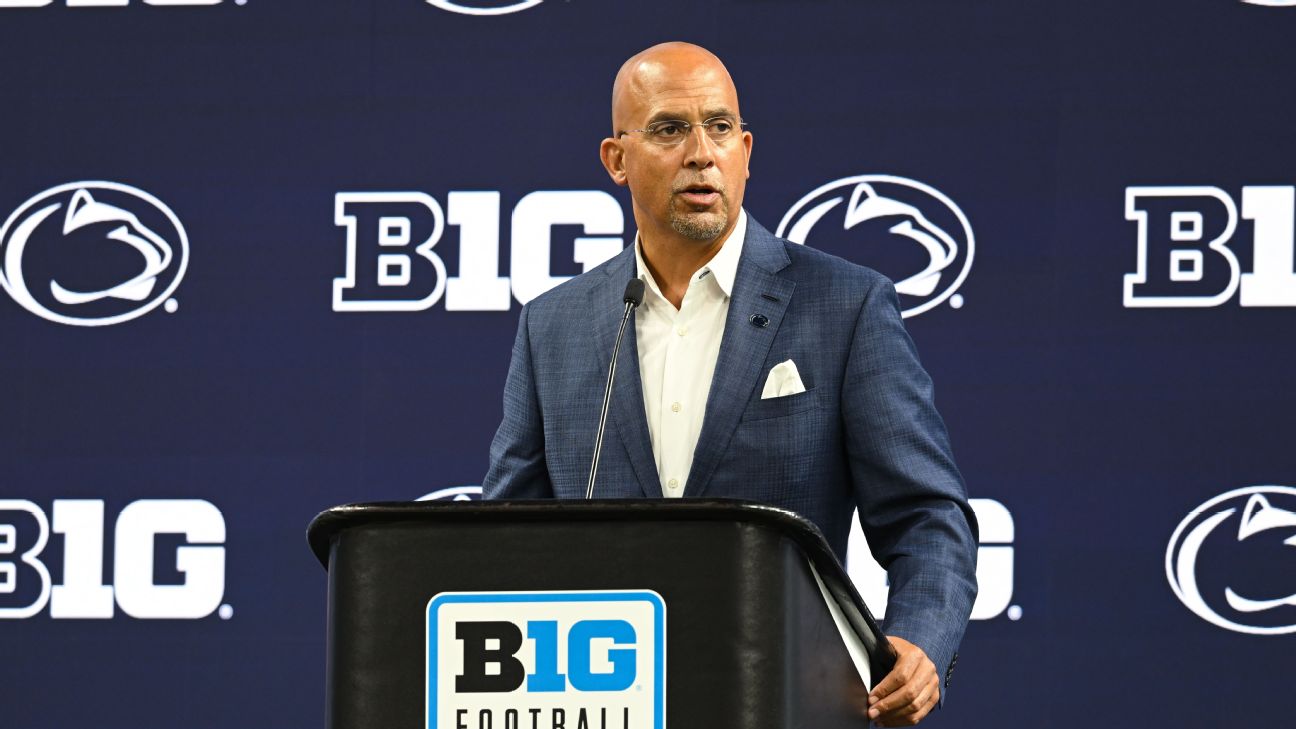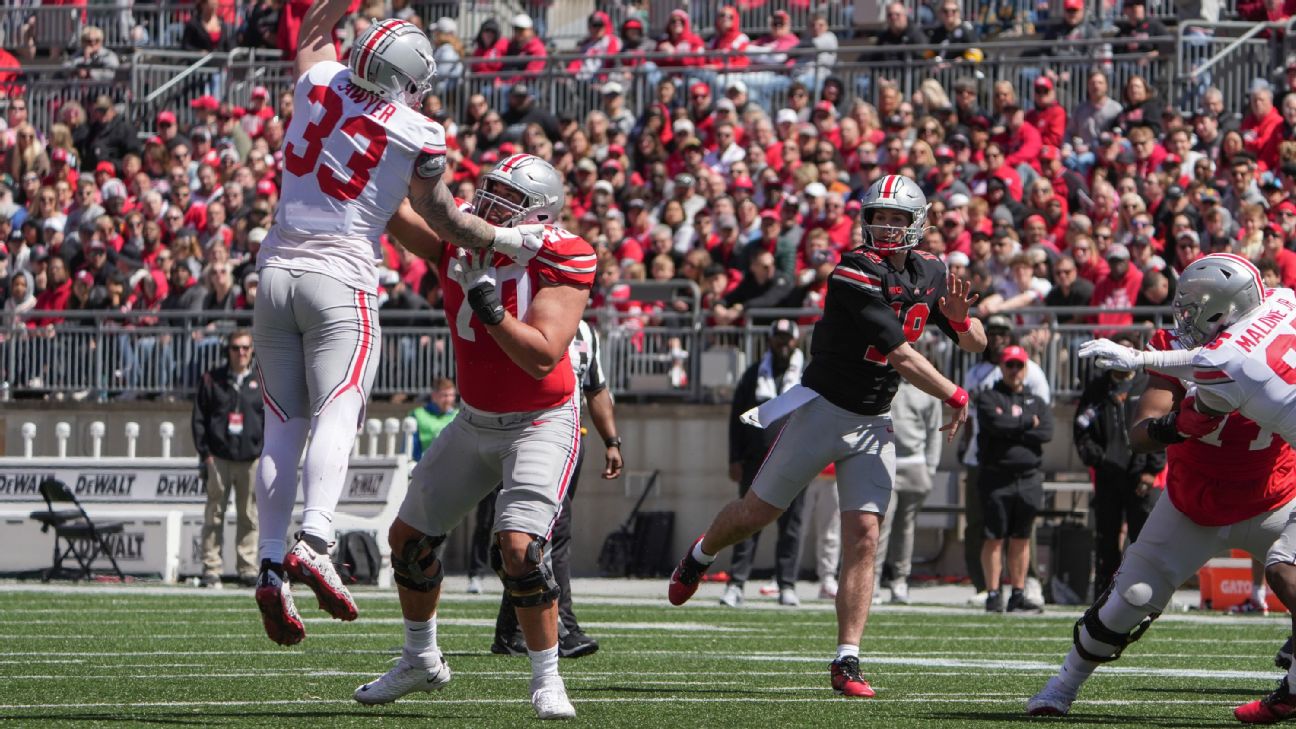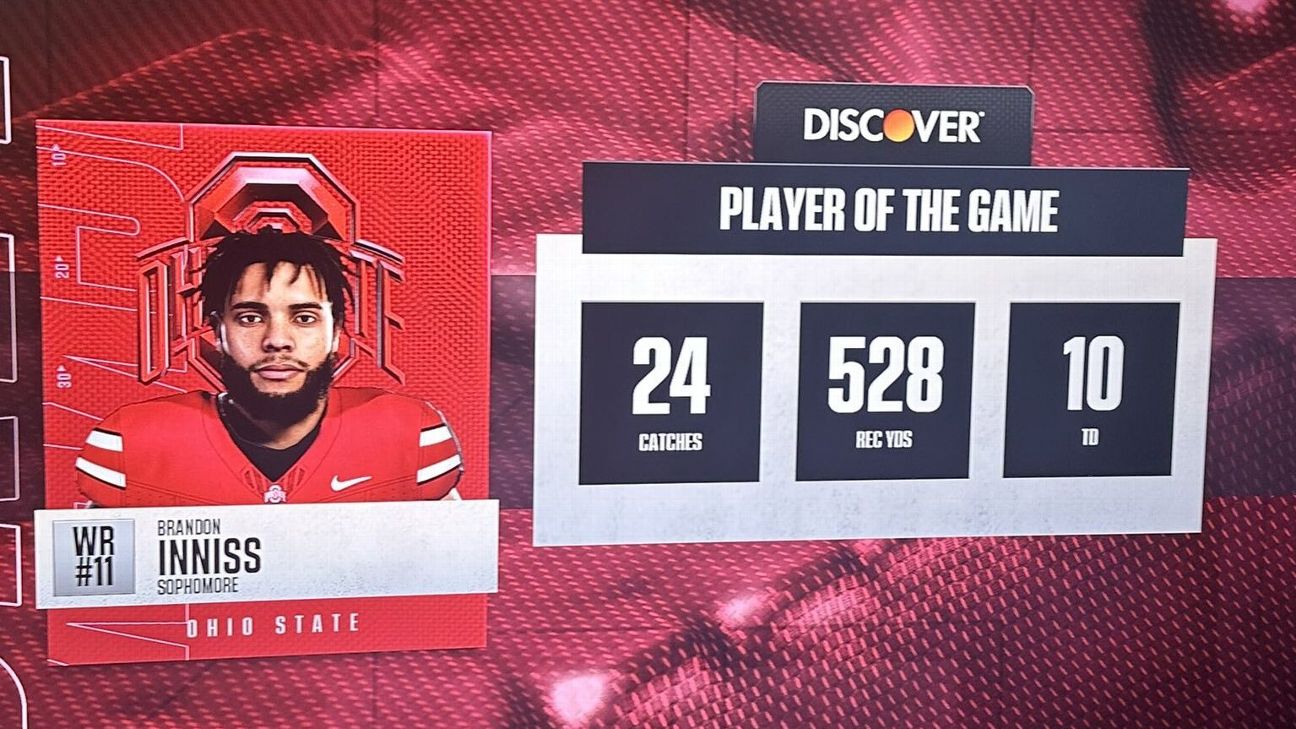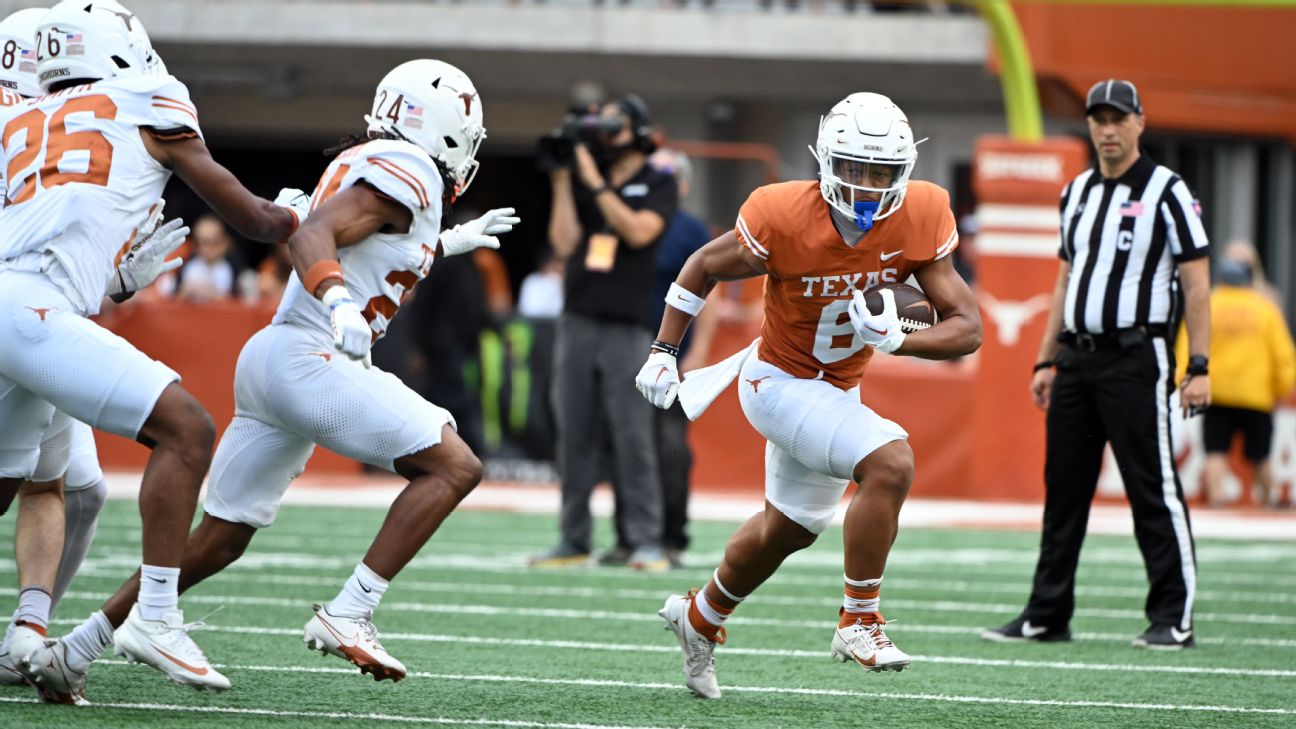Big Ten football, including Penn State, returning next month
Penn State Football returns October 24.

STATE COLLEGE, Pennsylvania (WPVI) -- Big Ten football is coming back.
The conference announced Wednesday morning that Big Ten football will return next month in light of spiking COVID-19 cases at colleges and universities across the country.
ABC News confirmed the announcement earlier in the morning.
The Big Ten Council of Presidents and Chancellors voted unanimously to resume the football season starting the weekend of October 23-24.
Conference officials said the decision was based on information presented by the Big Ten Return to Competition Task Force, "a working group that was established by the COP/C and Commissioner Kevin Warren to ensure a collaborative and transparent process."
The Big Ten conference includes several schools in our region, including Penn State and Rutgers universities.
Penn State Football Head Coach James Franklin released a statement in reaction to the Big Ten's return:
In a statement, conference officials said, "The Big Ten will require student-athletes, coaches, trainers and other individuals that are on the field for all practices and games to undergo daily antigen testing. Test results must be completed and recorded prior to each practice or game. Student-athletes who test positive for the coronavirus through point of contact (POC) daily testing would require a polymerase chain reaction (PCR) test to confirm the result of the POC test."
"The data we are going to collect from testing and the cardiac registry will provide major contributions for all 14 Big Ten institutions as they study COVID-19 and attempt to mitigate the spread of the disease among wider communities," said Dr. Jim Borchers, Head Team Physician, The Ohio State University and co-chair of the Return to Competition Task Force medical subcommittee.
Each institution will designate a Chief Infection Officer who will oversee the collection and reporting of data for the Big Ten Conference. Team test positivity rate and population positivity rate thresholds, officials said, will be used to determine recommendations for continuing practice and competition.
Conference officials said decisions to alter or halt practice and competition will be based on the following scenarios:
Orange/Orange and Orange/Red: Team must proceed with caution and enhance COVID-19 prevention (alter practice and meeting schedule, consider viability of continuing with scheduled competition).
Red/Red: Team must stop regular practice and competition for a minimum of seven days and reassess metrics until improved.
All COVID-19 positive student-athletes will have to undergo comprehensive cardiac testing to include labs and biomarkers, ECG, Echocardiogram and a Cardiac MRI. Following cardiac evaluation, the Big Ten said student-athletes must receive clearance from a cardiologist designated by the university for the primary purpose of cardiac clearance for COVID-19 positive student-athletes.
The earliest a student-athlete can return to game competition is 21 days following a COVID-19 positive diagnosis, according to officials.
"In addition to the medical protocols approved, the 14 Big Ten institutions will establish a cardiac registry in an effort to examine the effects on COVID-19 positive student-athletes. The registry and associated data will attempt to answer many of the unknowns regarding the cardiac manifestations in COVID-19 positive elite athletes," the statement read.
Officials said eventually all Big Ten sports will require testing protocols before they can resume competition.
The daily testing will begin by September 30.
On Tuesday, Penn State released results of its coronavirus testing for the week of Sept. 4 to 10. Among students tested at the University Park campus, Penn State received 260 positive results from its on-demand testing and 28 positive results from its random screening. Random screening of employees has returned one positive result for University Park so far for the week.
Earlier this week, the Associated Press reported the Big Ten presidents were presented a comprehensive plan to conduct a fall football season.
A person with direct knowledge of the situation told the AP that the full Council of Presidents and Chancellors heard from all the subcommittees of the conference's Return to Competition Task Force over two and half hours. The person spoke on condition of anonymity because the Big Ten was not making its return to competition plans public.
The AP reported if the Big Ten can start by late October, an eight-game season and conference championship game in mid-December is still possible. That schedule could set up Big Ten teams to be part of the College Football Playoff.
The AP reported if the Big Ten can start by late October, an eight-game season and conference championship game in mid-December is still possible. That schedule could set up Big Ten teams to be part of the College Football Playoff.
Back on August 11, the Big Ten announced the postponement of fall sports because of concerns about COVID-19.
In that statement, the Big Ten said it would continue to evaluate a number of options regarding these sports, including the possibility of competition in the spring.
An hour after the Big Ten's postponement announcement, the Pac-12, the Big Ten's Rose Bowl partner, called a news conference to say that all sports in its conference would be paused until Jan. 1, including basketball.
Before postponing its season, the Big Ten had released a revised conference-only football schedule that it hoped would help it navigate a fall season with potential COVID-19 disruptions.
The Big Ten touts itself as the oldest college athletic conference in the country, dating back to 1896 when it was called the Western Conference, and its schools have been playing football ever since. It became the Big Ten in 1918 and grew into a football powerhouse.
The 14 Big Ten schools span from Maryland and Rutgers on the East Coast to Iowa and Nebraska out west. Not only has it been one of the most successful conferences on the field, but off the field it has become one of the wealthiest.
The Big Ten, with its lucrative television network, distributes about $50 million per year to its members.
Big Ten officials said updates regarding fall sports other than football, as well as winter sports that begin in the fall including men's and women's basketball, men's ice hockey, men's and women's swimming and diving, and wrestling, will be announced shortly.
----
The Associated Press contributed to this report.












